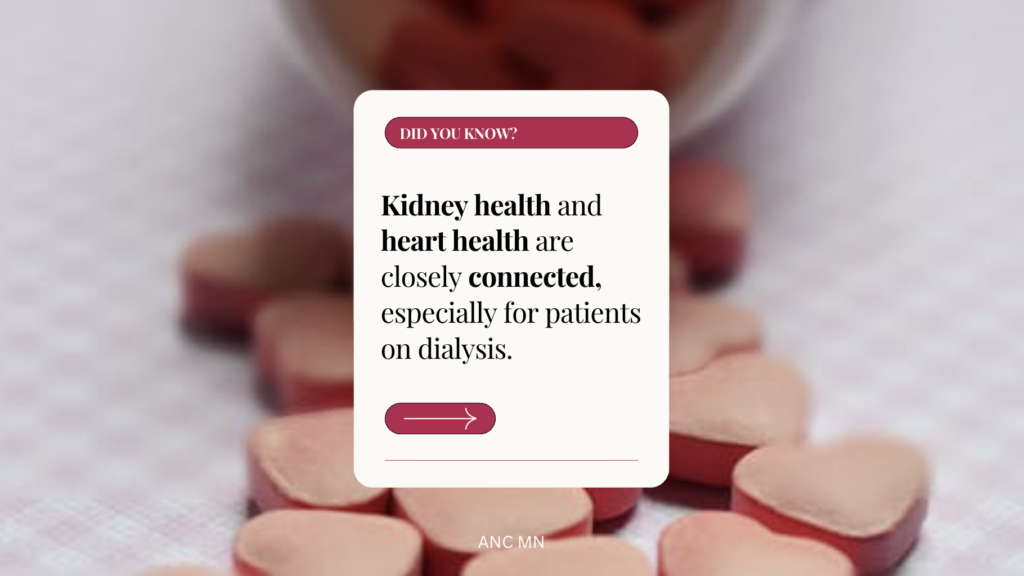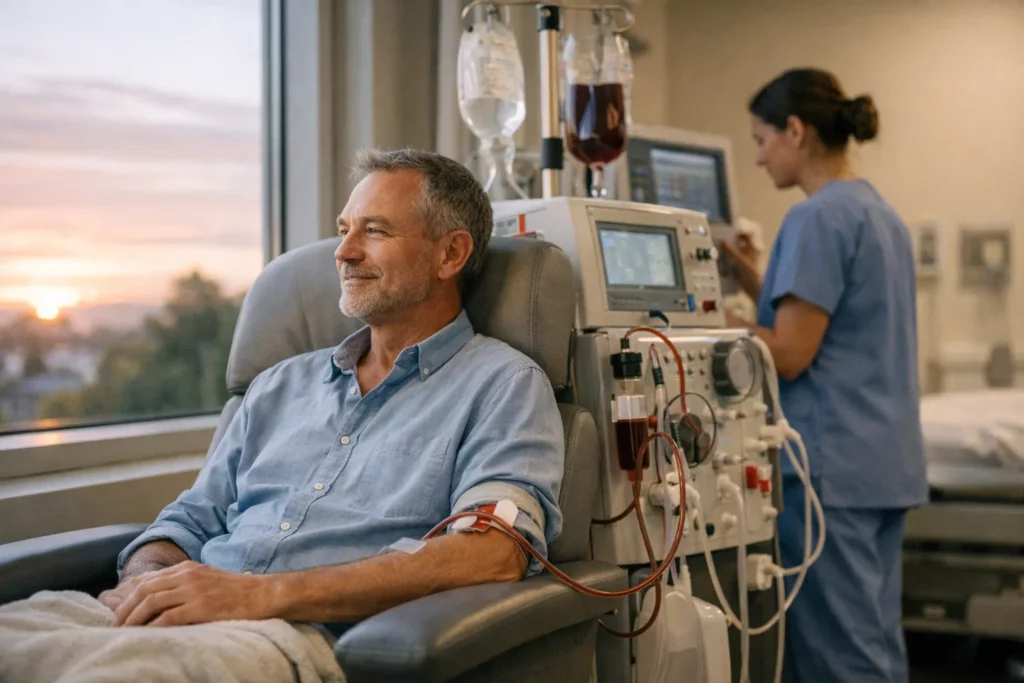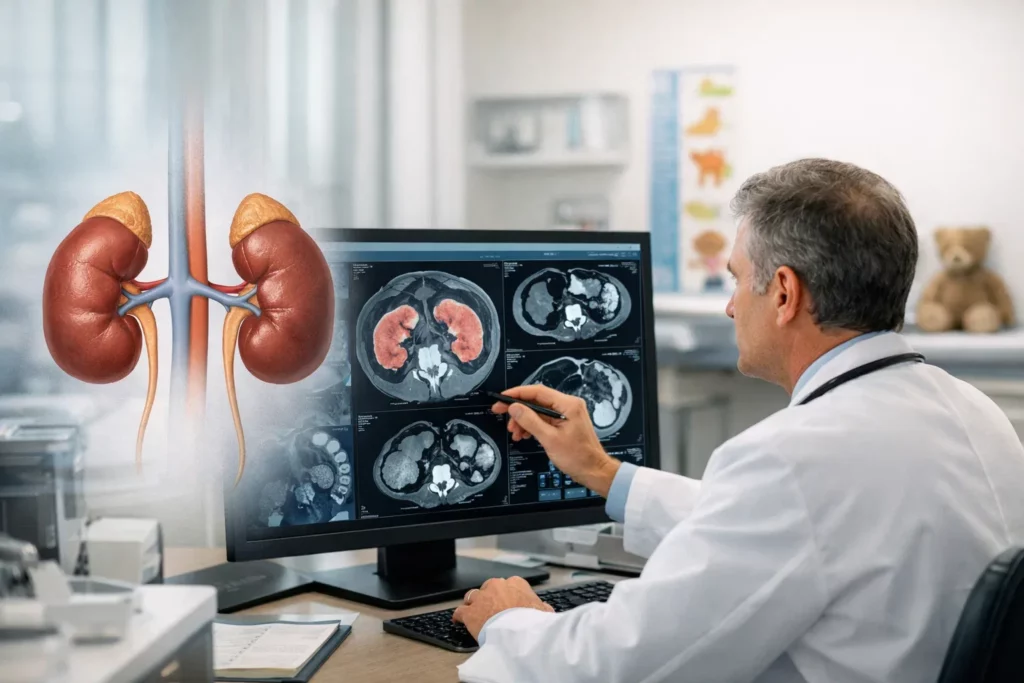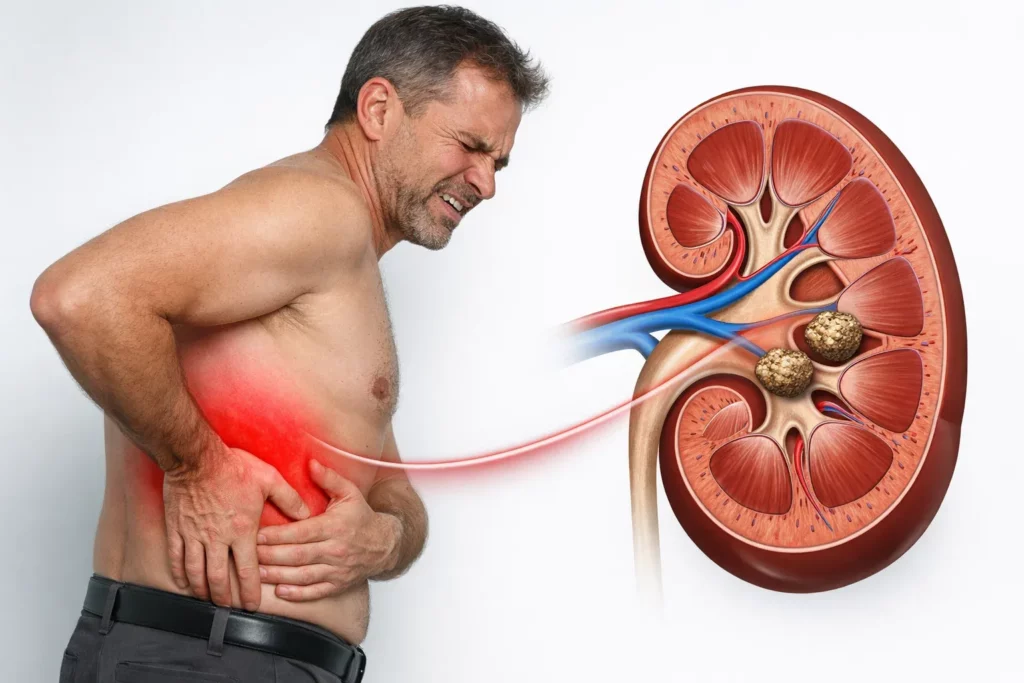Throughout February the ANC team is helping patients “demystify dialysis”. This week, we sat down with ANC’s NP, Amy Sibley to overview PD dialysis access and how patients are equipped with the tools and resources to succeed!
Training and Preparation Difference
For Home Peritoneal Dialysis (PD), patients typically begin by getting a referral for a PD catheter. Once approved, the catheter will be placed and patients may wait up to two weeks for the access to heal before using their prescription. In extreme cases, however, exceptions to the two-week recovery period can be made flexible based on urgency.
Once your catheter heals, patients undergo thorough guided training (typically 8-15 training sessions) to learn the ins and outs of routinely running PD. Oftentimes, PD training is made flexible to work with your schedule with each session being conducted in four-hour increments. Patients go in-clinic for these training sessions and learning materials include videos and demos on how PD works in the body and learning the use of the machine. Sessions also equip patients with knowledge on how to prevent infection, when to call for support, and how to troubleshoot. After completing in-person training, staff will conduct a home visit to help you simulate a PD session and ensure your dialysis environment is safely set up!
Resources for Patients on At-Home Dialysis
If at any point you need support with administering your home PD, there is a 24/7 helpline that you can consult. That said, most complications aren’t urgent in PD, so most people call to ask quick questions that can be fixed or taken care of within the following day. At ANC specifically, we have an education network called “ANC Pathways Clinic” that patients can engage with! For patients seeking more resources to help them navigate their home dialysis journeys, Amy recommends a few different resources that are available:
Organizations:
Two organizations for popular consultation include the National Kidney Foundation (NKF) and Davita which are both helpful for general health questions surrounding kidney care.
Community:
Alternatively, many patients enjoy consulting personal stories from members of the dialysis and kidney disease community. Kidney Smart classes are another great option available nationwide at no cost!





